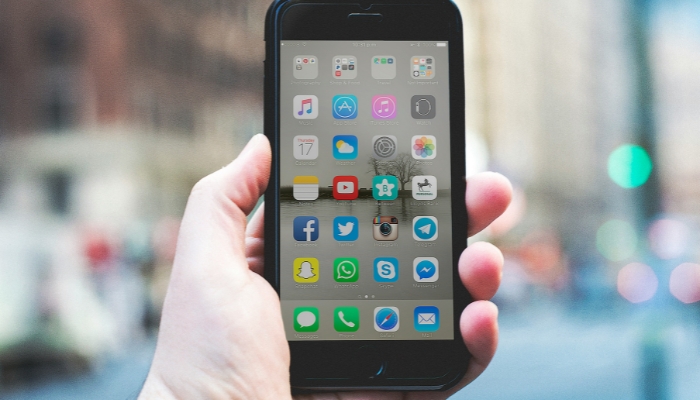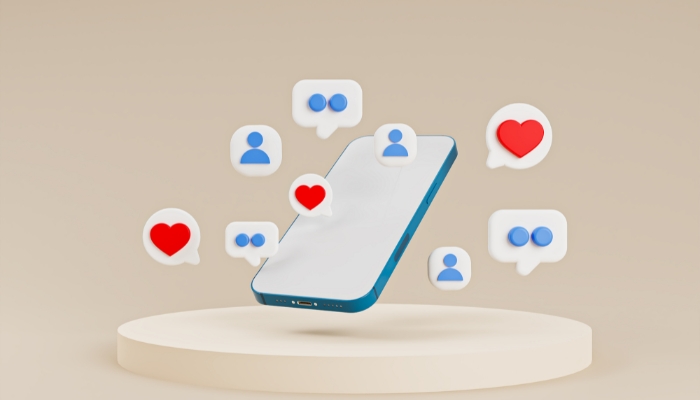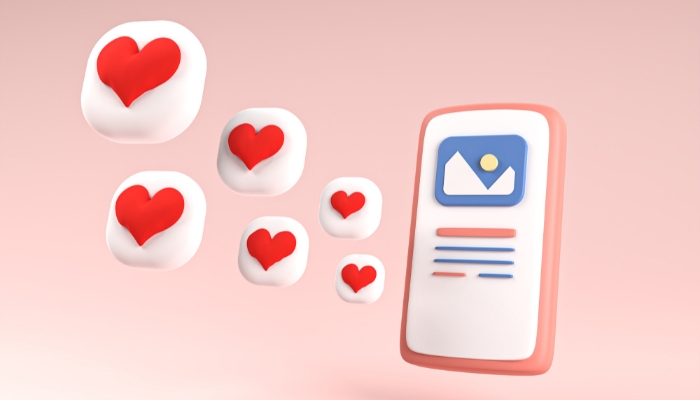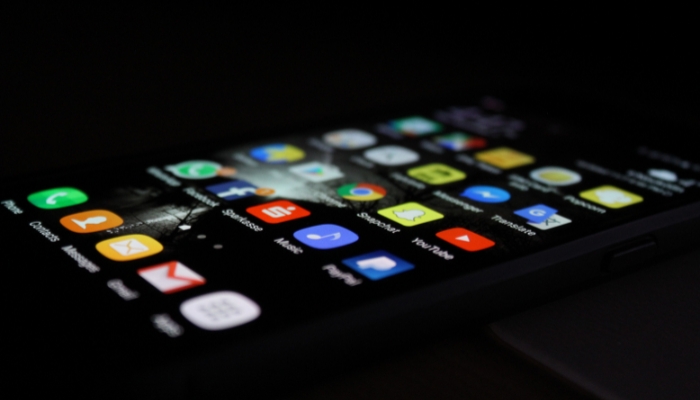
In the modern era of technology, dating apps have become a popular means for people to connect and find potential partners. However, the question arises: why don’t dating apps work as effectively as expected? This question is crucial in understanding the dynamics of online dating and its impact on contemporary relationships.
Dating apps might not work for some because they rely heavily on first impressions from profiles, which can be misleading. Also, the abundance of choices can make it hard to focus on one connection, leading to superficial interactions. Plus, the ease of online communication might not translate well into meaningful real-life connections.
Let’s unravel this together, exploring the myths and realities of online dating algorithms, the paradox of choice, and the pitfalls of superficial judgment. Buckle up; you’re about to learn why don’t dating apps work.
Table of contents
The Myth of the Perfect Algorithm
Despite relying on sophisticated algorithms, you’re still struggling to find a perfect match on dating apps, debunking the myth of the perfect algorithm.
You’ve swiped left and right on a swipe-based app, hoping the algorithm-based matches would lead you to your potential match. Yet, no dice. Why is that?
The reason isn’t you; it’s the nature of online dating itself. Remember, dating apps are designed to keep you swiping, not necessarily to find you love. They offer an illusion of endless possibilities, but in reality, they can’t predict chemistry. An algorithm can’t measure your gut feeling when you meet someone new or the thrill you feel when you discover shared interests.
Moreover, the criteria that you input into a dating app mightn’t truly reflect what you want in a partner. You might think you want a partner who loves rock climbing because you do, but in reality, you might be happier with someone who shares your sense of humor or life values.
In conclusion, the myth of the perfect algorithm in online dating doesn’t hold up under scrutiny.
Overwhelming Choice Paralysis

In your quest for love, you’re likely to encounter the daunting problem of choice paralysis on dating apps. This overwhelming choice paralysis is a common issue among dating app users. With a simple swipe, you’re exposed to countless potential matches, each with their unique blend of qualities and quirks. But instead of making your search easier, this abundance often leads to indecision, stress, and dissatisfaction.
Modern dating, with its buffet of digital possibilities, has inadvertently created a culture of indecisiveness. You’re stuck in a cycle of continuous searching, always wondering if there’s someone better just a swipe away. This is the paradox of choice in action – the more options you have, the harder it’s to make a decision.
The popular dating app, Tinder, for example, allows users to swipe through hundreds of profiles daily. But does more mean better? Not necessarily. In fact, the backlash against dating apps has been partly due to this very reason. Too many choices can be as frustrating as too few, leading to a paradoxical feeling of being alone in a crowd of potential partners.
Therefore, it’s essential to manage your expectations and use these tools wisely.
Superficiality and Snap Judgments
Often, you’re making snap judgments based on superficial factors when using dating apps. This superficiality and snap judgments, more often than not, dictate your next swipe. You might find yourself judging potential matches based on their online dating profile picture, dismissing them if they’re posing with a fish or if their mirror selfies are blurry. It’s not entirely your fault, though. The design of these apps encourages this behavior, offering little more than attractive photos and a brief bio to base your decision on.
Yet, there’s so much more to a person than just their ability to take a good photo. You’re not seeing their quirks, their sense of humor, or their kindness to strangers. You’re missing out on the depth and complexity of their personality, reducing them to a simple left or right swipe based on a few seconds of superficial assessment.
Remember, an attractive photo doesn’t always translate to compatibility or a meaningful connection. You might be dismissing potential matches who could be great for you. This focus on the surface is one of the reasons dating apps often disappoint.
The Disembodied Nature of Communication
Another significant factor you may not consider is the disembodied nature of communication on dating apps. This aspect of the online dating experience can hinder the formation of meaningful connections.
Here’s how the disembodied nature of communication affects online daters:
- Lack of Non-Verbal Cues: Online conversations lack the subtle non-verbal cues that add depth to a real connection. You’re missing out on body language, tone of voice, and facial expressions that can reveal more about a person than text messages.
- Delayed Responses: Instant messaging doesn’t always mean instant replies. This can lead to misinterpretations and unnecessary stress, impacting the connection.
- Online Persona: The anonymity of the internet allows people to craft an idealized persona. You’re connecting with a projection, not the real person.
- Lack of Shared Experiences: Unlike traditional dating, online daters don’t share experiences during communication. This can limit the depth of connection.
In essence, the disembodied nature of communication hinders the establishment of real, meaningful connections. It strips away the nuances of human interaction, making it harder to form deep and lasting connections with potential partners.
Unrealistic Expectations Fostered by Dating Apps

You mightn’t realize it, but dating apps can foster unrealistic expectations that make finding a meaningful relationship even more challenging. This is a key reason why dating apps often don’t work. They create a commodification of dating, reducing potential partners to a handful of photos and a brief bio. This simplification can lead you to believe that finding the perfect match should be as easy as scrolling through a catalogue, fostering unrealistic expectations.
This commodification also feeds into an all-too-common online dating mis: the notion that there’s always someone better just a swipe away. Instead of investing time and energy into getting to know someone, you might find yourself constantly searching for a more perfect match. This endless search can make your online dating journey frustrating and unfulfilling.
In reality, relationships are complex and take time to build. They require more than just shared interests or physical attraction. By creating unrealistic expectations, dating apps can inadvertently make it harder for you to find a meaningful relationship, instead of making it easier. Understanding this can help you navigate the online dating world more successfully.
The Psychological Impact of Dating Apps
In the world of dating apps like Tinder and Bumble, users often face a paradox. With an endless array of choices, you’d think finding a match would be easier, yet some platforms are often tagged as the ‘worst dating app‘ due to their negative psychological impacts. However, this abundance often leads to unrealistic expectations.
Users, especially attractive women and female users, might expect to find the perfect partner, overlooking the fact that real life relationships are built on compromise and understanding.
This dating process can become a waste of time, as swiping through profiles creates an illusion that there’s always someone better just a swipe away.
The Effect on Self-Esteem and Mental Health
Dating apps can significantly impact self-esteem and mental health. A study by the Pew Research Center revealed that continuous swiping and the success rate of matches can affect how individuals view themselves.
Users often judge themselves based on their primary photo or the number of compelling messages they receive. This constant evaluation can lead to a decrease in self-esteem, especially if they experience bad dates or receive boring messages.
The pressure to present oneself as an actual person with a cool photo or an ideal body photo can be overwhelming, leading to mental health challenges.
The Illusion of an Endless Supply of Potential Partners
Dating apps like Plenty Of Fish and Coffee Meets Bagel offer a seemingly endless pool of potential partners. This can create an illusion that there’s always someone better out there, hindering the development of a long-term relationship.
Users may become dating hobbyists, always on the lookout for the next best thing, rather than focusing on developing a meaningful connection with someone.
This behavior can lead to a cycle of short, unfulfilling relationships, or worse, a co-dependent relationship. It’s crucial to remember that the goal of dating should be to find a caring person and build a committed relationship, rather than just enjoying the thrill of new connections.
In conclusion, while dating apps offer a convenient way to meet new people, especially in larger cities, they also come with psychological impacts. It’s important to balance the use of these apps with social circles and singles events in real life to maintain a healthy perspective on dating and relationships.
Alternatives to Dating Apps

In the quest for companionship, many turn to dating apps. However, these platforms aren’t the only way to find a partner. Exploring both traditional and modern alternatives can offer refreshing ways to connect.
Exploring Traditional and Modern Alternatives to Online Dating
Traditional dating methods, like meeting through circle of friends or at social circles events, have always been popular. These methods allow for a conversation in person, giving a more authentic feel compared to online chats.
Speed dating events and singles events are also great ways to meet potential partners. They offer a fun and efficient way to interact with multiple people, increasing the chances of finding a match.
Modern alternatives include hobby-based clubs or groups, which can be particularly effective. Joining a club that aligns with your interests, such as a book club, hiking group, or a cooking class, can lead to meeting someone with similar passions. This shared interest provides a natural and comfortable starting point for a relationship.
Pros and Cons of Different Approaches to Dating
Each dating method has its pros and cons. Traditional methods, like meeting through friends or at events, often provide a sense of security and comfort. However, they might offer limited options, especially in smaller social circles or larger cities where meeting new people can be challenging.
Modern alternatives, while offering a wider range of potential partners, might lack the immediacy and personal touch of real-life interactions. For instance, joining hobby groups exposes you to people with similar interests, but it might take longer to find a romantic connection.
How to Choose the Right Method for Individual Needs
Choosing the right dating method depends on personal preferences and lifestyle. If you value face-to-face interactions and have a vibrant social life, traditional methods might suit you better. For those with specific interests or hobbies, joining related groups can be a fulfilling way to meet a partner.
In summary, while dating apps are convenient and can be good for certain purposes – answering the question of why are dating apps good, exploring other avenues can lead to more meaningful connections. Whether it’s through friends, interest-based groups, or community events, the key is to find a method that aligns with your personality and lifestyle.
Conclusion
So, you’re wondering why dating apps don’t work for you? The truth is, no algorithm is perfect and the abundance of choices can lead to paralysis.
These platforms encourage superficial judgments and disconnect us from authentic communication. Plus, they often foster unrealistic expectations.
Remember, dating apps are just tools – it’s up to you to use them wisely and not let them dictate your love life.
FAQs on Dating Apps
Why Do People Use Dating Apps?
People use dating apps for various reasons, ranging from seeking a long-term relationship to exploring the dating scene. Dating apps like Tinder and Bumble offer a convenient way to meet new people, especially in larger cities where traditional meeting spots like coffee shops or bars might not yield desired results.
They provide a platform where one can connect with others based on shared interests, location, and preferences.
How Effective Are Dating Apps in Finding a Match?
The effectiveness of dating apps can vary. According to the Pew Research Center, many users experience at least some degree of success.
However, the success rate depends on factors like how one presents themselves in their primary photo and profile, the effort put into sending compelling messages, and the app’s algorithm. While some find meaningful connections, others might find the experience less fruitful.
Are Dating Apps Safe?
Safety on dating apps is a mixed bag. While most apps have safety features and guidelines, issues like misrepresentation and, in extreme cases, sexual assault, are concerns. It’s crucial to take safety precautions, like meeting in public places and informing friends about dates.
What Are the Downsides of Using Dating Apps?
The downsides include the potential for waste of time, encountering bad dates, and the impact on mental health due to things like boring messages or a lack of matches. The paradox of choice, where too many options lead to indecision, is also a common issue. Additionally, the superficial nature of selecting matches based on body photos or brief bios can lead to shallow judgments.